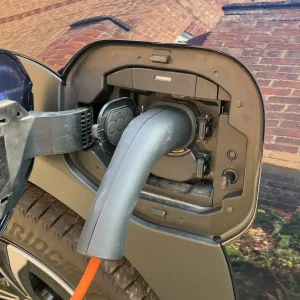The arrival of a new crossover called C-HR late this year will give Toyota a “big corporate opportunity”, according to Neil Broad, Toyota and Lexus fleet and remarketing general manager.
“We’ve not been represented in the C-SUV [lower medium] market in the same way as our competition. The C-HR will give us a big volume opportunity and a big corporate opportunity,” he told BusinessCar. “We’ve got to start changing the balance of our sales mix.”
“In the markets we have a product in, our share is increasing year on year, and you’ve got to look at the quality of fleet sales as well – we do very well with people we deal with, which is generally fleet sales
to end user-choosers.”
Toyota is expecting the C-HR to work “in tandem” with the new Rav4 model to create a twin-SUV offering from Toyota. The Rav4, launched early this year, is already up to 2700 orders against a target of 4000 in 2016, and Broad said the firm is pushing for more production. He also said the C-HR crossover model coming late this year is the “start of the journey” for Toyota styling that Lexus has just been on.
Toyota’s premium brand is continuing to grow off the back of more controversial styling that attracts attention, according to Broad. “The Lexus design is getting there and delivering more polarity than there used to be,” he told BusinessCar. “We are now exhibiting our own identity and selling to people that want a Lexus.
“Some want ‘that’ car and then find out about the Lexus service experience – from a product quality perspective they want a decent-looking car, where the fuel economy works out for them, with the [Lexus]customer service and reliability,” he continued. “Stack all that together and the Lexus story is very strong.”
The Toyota and Lexus fleet boss said the Japanese premium brand benefits from “not playing the game” of the premium German brands: “The German three work looking largely over their shoulder at each other.we are selling on our own merits.”
Toyota and Lexus are, according to Broad, well placed to deal with any diesel fall-out, with a third of vehicles it sells in the UK next year to be petrol-electric hybrid-powered, rising to half in 2020. “We are now approaching the tipping point on business decisions.
We don’t know where legislation will go, but if you have any concerns then put your money in the safe house,” Broad declared. “We’re starting to get to the point where we’re saying why wouldn’t you want a quieter, cleaner, smoother driving experience and a more rounded footprint?”





